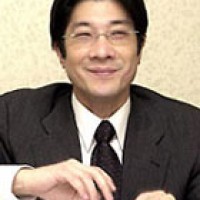Sakamoto is a Japanese director and screenwriter. As a student he assisted directors such as Sogo Ishii and Kazuyuki Izutsu. He made his debut as a director with the film
Knockout (Dotsuitarunen, 1989), for which he won the award as Best Young Director at the Film festival in Yokohama. His other films include
Checkmate (Ôte, 1991), action drama
Tokarefu (1994) for which he again won the award as Best Director at the Film festival in Yokohama, comedy
Biriken (1996),
An Angel with Many Scars (Kizu darake no tenshi, 1997),
The Goofball (Orokamono: Kizu darake no tenshi, 1998),
Face (Kao, 2000) for which he won the award for Best Director from the Japanese Academy as well as Best Director and Best Screenplay in Yokohama. He also made the drama
Another Battle (Shin jingi naki tatakai, 2000),
KT (2002) based on true events; the comedy
My House, (Bokunchi, 2003), drama
Out of This World (Kono yo no sotoe - Club Shinchugun, 2004), war drama
Bôkoku no îgisu (2005), family drama
Tamamoe! (2007),
Chameleon (2008) and
Yami no kodomotachi (2008). In 2010, he made
Zatôichi, story about a blind samurai, Japanese writer Kan Shimosawa’s famous character. His last two films are
Strangers in the City (Yukizuri no machi, 2010) and
Someday (Ooshikamura soudouki, 2011).

